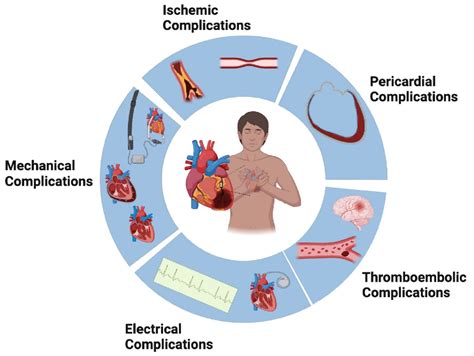Intro
Discover 7 essential hysterectomy recovery tips for a smooth post-op journey, including pain management, nutrition, and self-care strategies to minimize complications and promote healing, ensuring a healthy recovery from hysterectomy surgery.
Recovering from a hysterectomy, a surgical procedure to remove a woman's uterus, can be a challenging and overwhelming experience. The road to recovery is unique for each individual, and understanding what to expect and how to manage the healing process is crucial for a smooth and successful recovery. As with any major surgery, it's essential to prioritize self-care, follow medical instructions, and be patient with the body's healing process.
A hysterectomy is often performed to treat various health conditions, such as uterine cancer, fibroids, endometriosis, and chronic pelvic pain. The surgery can be life-changing, offering relief from debilitating symptoms and improving overall quality of life. However, the recovery period can be lengthy, typically taking several weeks to a few months. During this time, it's vital to focus on physical and emotional well-being, as well as make necessary lifestyle adjustments to ensure a comfortable and speedy recovery.
The first few weeks after a hysterectomy are critical, as the body begins to heal, and the risk of complications is higher. It's essential to follow a healthcare provider's instructions, attend follow-up appointments, and monitor for any signs of infection or other issues. Additionally, maintaining a healthy diet, staying hydrated, and engaging in gentle exercises can help promote healing, reduce discomfort, and improve overall health. By being informed and prepared, individuals can navigate the recovery process with confidence, minimizing potential complications and optimizing their chances of a successful and speedy recovery.
Hysterectomy Recovery Overview

Physical Changes During Recovery
Physical changes during hysterectomy recovery can vary depending on the individual and the type of surgery performed. Common physical changes include abdominal tenderness, swelling, and bruising, as well as vaginal discharge and bleeding. Some women may also experience constipation, gas, and bloating due to the surgery and anesthesia. It's essential to follow a healthcare provider's instructions for managing these symptoms, which may include taking pain medication, using heating pads, and engaging in gentle exercises to promote bowel movements.Managing Pain and Discomfort

Coping with Emotional Changes
Coping with emotional changes is an essential aspect of hysterectomy recovery. The surgery can have a significant impact on a woman's emotional well-being, leading to feelings of sadness, anxiety, and depression. It's essential to acknowledge these emotions and seek support from loved ones, healthcare providers, or mental health professionals. Engaging in activities that promote relaxation and stress reduction, such as yoga, meditation, or reading, can also help individuals cope with emotional changes. Additionally, joining a support group or online community can provide a sense of connection and understanding, helping individuals navigate the emotional aspects of recovery.Nutrition and Hydration During Recovery

Returning to Normal Activities
Returning to normal activities is a gradual process that requires patience, caution, and careful planning. It's essential to follow a healthcare provider's instructions for resuming daily activities, which may include lifting, bending, or exercising. Individuals should start with gentle exercises, such as walking or yoga, and gradually increase their intensity and duration as their body allows. It's also essential to prioritize rest and avoid overexertion, which can lead to complications or prolong the recovery period.Support Systems and Resources

Follow-up Care and Appointments
Follow-up care and appointments are essential aspects of hysterectomy recovery. Individuals should attend all scheduled follow-up appointments with their healthcare provider to monitor their progress, address any concerns, and receive guidance on managing their recovery. It's essential to ask questions, seek clarification, and express any concerns or worries during these appointments. By prioritizing follow-up care and appointments, individuals can ensure they receive the best possible care, minimize potential complications, and optimize their chances of a successful and speedy recovery.Complications and Risks

Long-term Effects and Outcomes
The long-term effects and outcomes of hysterectomy recovery can vary depending on the individual and the type of surgery performed. Some women may experience changes in their hormonal balance, leading to symptoms such as hot flashes, mood swings, or vaginal dryness. Others may experience changes in their bowel or urinary habits. It's essential to discuss any concerns or questions with a healthcare provider, who can offer guidance, support, and resources to help individuals manage any long-term effects and optimize their overall health and well-being.Conclusion and Next Steps

What are the most common symptoms experienced during hysterectomy recovery?
+The most common symptoms experienced during hysterectomy recovery include pain, discomfort, fatigue, and vaginal discharge or bleeding. Some women may also experience constipation, gas, and bloating due to the surgery and anesthesia.
How long does it take to recover from a hysterectomy?
+The recovery time for a hysterectomy can vary depending on the individual and the type of surgery performed. Generally, it can take several weeks to a few months to fully recover from a hysterectomy.
What are the potential complications and risks associated with hysterectomy recovery?
+Potential complications and risks associated with hysterectomy recovery include infection, bleeding, blood clots, or reactions to anesthesia. It's essential to monitor for any signs of complications and seek medical attention immediately if any concerns arise.
How can I manage pain and discomfort during hysterectomy recovery?
+Managing pain and discomfort during hysterectomy recovery can involve taking pain medication, applying heat or cold packs, and engaging in gentle exercises or relaxation techniques. It's essential to follow a healthcare provider's instructions for managing pain and to seek medical attention if pain becomes severe or unbearable.
What are the long-term effects and outcomes of hysterectomy recovery?
+The long-term effects and outcomes of hysterectomy recovery can vary depending on the individual and the type of surgery performed. Some women may experience changes in their hormonal balance, leading to symptoms such as hot flashes, mood swings, or vaginal dryness. Others may experience changes in their bowel or urinary habits.
